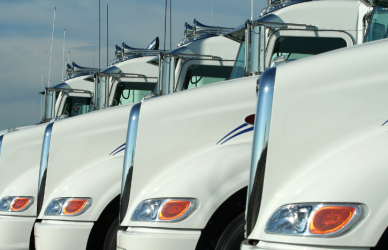The Federal Motor Carrier Safety Administration (FMCSA) has initiated the public comment phase for an exemption application concerning rear-vision mirrors. Convoy Technologies is seeking approval for their electronic rearview system to replace the two traditional rear-vision mirrors mandated by the FMCSA on commercial motor vehicles (CMVs).
“Currently mirrors meeting or exceeding the required Federal Motor Vehicle Safety Standard No. 111 specifications are often used by roadside inspectors and law enforcement officers to see what is happening inside the cab,” the CVSA wrote in 2018 about a similar mirror exemption request. “For example, a passing enforcement official can see whether the driver has remained in the driver seat; a safety concern for inspectors.”
Federal regulations require all CMVs to be equipped with a rear-vision mirror on each side, offering drivers a comprehensive view of the highway behind and the surrounding areas on each side of the vehicle.
“Similarly, roadside inspectors use mirrors to identify when CMV drivers are operating a vehicle in an unsafe manner, such as while using a handheld device or not wearing a safety belt,” CVSA wrote. “Without status quo style mirrors, feasibility of current enforcement methods for these and related laws and regulations may be affected.”
To express your opinion on this matter, you can comment by following this link.
“The mirrors are a failsafe design, especially if you have mirrors mounted on the hood of your vehicle,” wrote truck driver Joseph Gavalis. “Just another reason to remove your eyes from the road and look down at your dashboard monitor. The mirrors keep your head up towards the windshield. The only reason they are supporting these cameras is to make money. … Too much technology is not always a good thing.”
It’s noteworthy that the FMCSA has previously granted exemptions for similar requests from Rosco Vision, Robert Bosch LLC, and Stoneridge. However, concerns have been raised by the Commercial Vehicle Safety Alliance (CVSA) and other stakeholders regarding the implications of such exemptions.
Source: The Trucker











